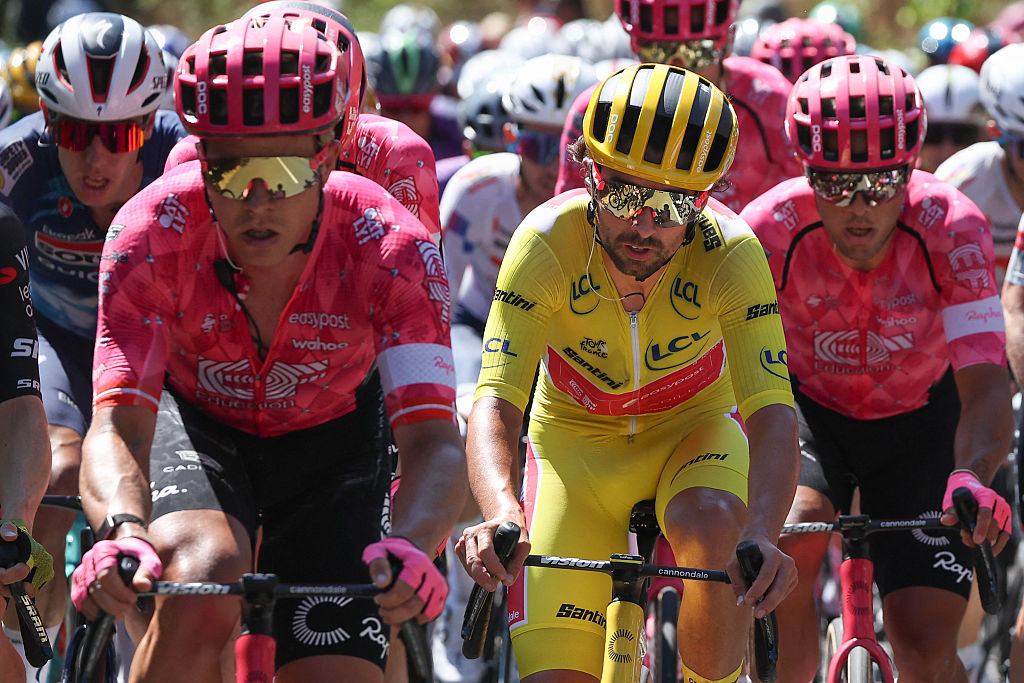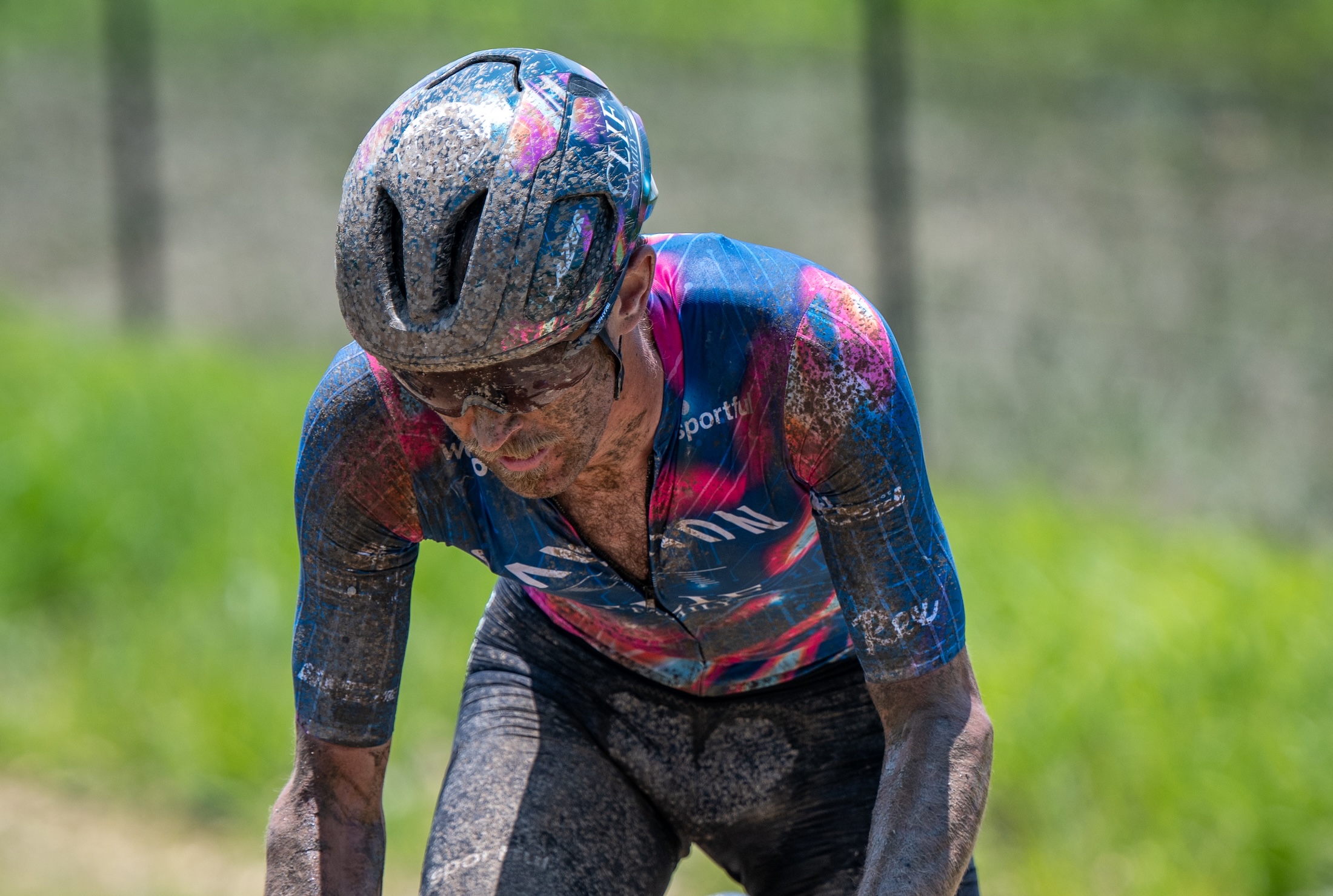'Respect between riders' - Tour de France leader Ben Healy explains why peloton waited for Tadej Pogačar after late crash
Irishman remains in yellow after fast and furious circuit stage round Toulouse

The latest race content, interviews, features, reviews and expert buying guides, direct to your inbox!
You are now subscribed
Your newsletter sign-up was successful
Tour de France leader Ben Healy has said that the decision to wait for top favourite Tadej Pogačar after the Slovenian crashed hard late on stage 11 was due to what the Irishman called "respect amongst riders."
Healy was in the same main chase group as Pogačar after a fraught, hilly stage around the southern city of Toulouse when the UAE Team Emirates-XRG leader was thrown off balance by another rider's manoeuvre, falling some four kilometres from the line.
The group then opted to wait, with Pogačar able to remount quickly and regain contact.
Earlier in the stage, after a break of five, including stage 11 winner Jonas Abrahamsen (Uno-X Mobility), had gone clear, Healy himself was involved in a full-on counter-attack, also including Jonas Vingegaard (Visma-Lease a Bike), that briefly forced Pogačar to chase.
However, that counter-move fizzled out, with Healy crossing the finish line in Toulouse in 24th place, and now leading the Tour de France into its first full mountain stage with his 29-second advantage over Pogačar intact, and his morale, after holding onto yellow, likely a little higher.
"It was a flat run-in, so we didn't expect any more time gaps," Healy said about the Pogačar incident. "The consensus amongst us all was to take it easy and let him come back."
As for the mid-race move involving himself, Pogačar and Vingegaard, he said, "It was a crazy day, with non-stop attacking. We were trying to lock the race down. But honestly, it was just impossible.
The latest race content, interviews, features, reviews and expert buying guides, direct to your inbox!
"There was a lull in the peloton for a little bit because we've got to drink and we've got to piss, so that happened, but the attacking continued after that. From that on, there were a lot of tired legs, and there was a little climb where a gap happened.
"I heard on the radio that Tadej was behind. I spoke to Jonas, and it would have been silly not to take it against someone like Tadej."
While that attempt failed to work out, the incident much later in the race where Pogačar fell hard and they all opted to wait was a very different situation, Healy said, where it would not have been fair to take advantage of an opponent's misfortune. As he put it, the racing was not 'on' at that point in the chase group, so trying to create a bigger gap would not have been the right way to behave.
"I guess it’s just respect amongst riders, like I said before, we were not expecting any time gaps from that point forward, and if anyone on the other side of that, I'd have appreciated the same in return. If whenever someone makes a silly mistake where there's not going to be crazy differences from that point forward, I think anyone would have appreciated the same."
While the Toulouse stage was certainly eventful, assuming Pogačar's injuries from his fall do not have any long-term effects, it was not overly consequential for the GC. Still, stage 12 into the Pyrenees will likely be a very different story.
The Tour de France has been up Hautacam no less than seven times, most recently in 2022 with a victory for Vingegaard, while Healy is leading a Grand Tour for the first time in his career. He said on Wednesday he thought he might have been up Hautacam as part of a stage in the Route d'Occitanie, but in fact, in his only participation to date in the French four-day race in 2022, Occitanie did not tackle that ascent.
In two key ways, then, Hautacam will be a voyage in the dark for the EF Education-EasyPost leader, and as Healy put it, "It'll be a real battle for me to the finish." But if his performances in this year's Tour so far are anything to go by, there is no way he'll be giving up yellow without an all-out effort to keep it.
The Tour de France is the biggest race in cycling, and a Cyclingnews subscription offers you unlimited access to our unrivalled coverage. Get all the breaking news and analysis from our team on the ground in France, plus the latest pro tech, live race reports, and a daily subscriber-only newsletter with exclusive insight into the action. Find out more.
Alasdair Fotheringham has been reporting on cycling since 1991. He has covered every Tour de France since 1992 bar one, as well as numerous other bike races of all shapes and sizes, ranging from the Olympic Games in 2008 to the now sadly defunct Subida a Urkiola hill climb in Spain. As well as working for Cyclingnews, he has also written for The Independent, The Guardian, ProCycling, The Express and Reuters.
You must confirm your public display name before commenting
Please logout and then login again, you will then be prompted to enter your display name.

